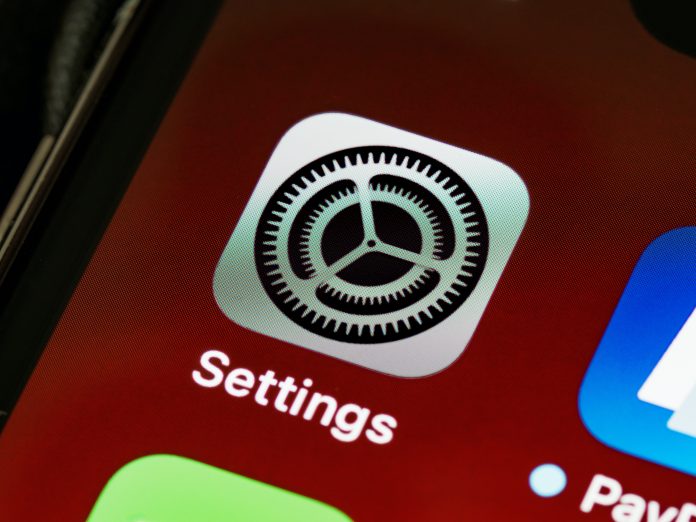In today’s article we have come up with a very useful topic, i.e., “How can you protect the data on your personal mobile device?” Nowadays, owning a personal cell phone is almost essential. It is reasonably priced and conveniently accessible.
Just think how your life would be without a mobile phone. Not possible to even imagine, right? Yeah, that is true because we do all our activities on our mobile phones.
From the morning alarm to scheduling important dates on calendars and from emails to personal time at night, everything is inside on our tini-tiny phones.
But this useful and harmless object can also entail many problems, particularly in security and data protection for your mobile phones and other similar devices.
One must be cautious and watchful when using your devices if you want to keep yourself safe from hackers and dishonest people.
You must be aware of the issues that might occur if your device is hacked, in addition to the cost of having your phone or iPhone fixed.
During our thorough research, we have identified a few crucial factors that must be taken into account in order to protect the data on your personal mobile device.
Best 15 steps to protect the data on your personal mobile device.
-
Choose A Professional Repair Shop:
When it comes to safeguarding data on mobile devices, this is the most critical aspect. Do not freak out if you break your mobile gadget. Locate the nearby, well-regarded repair facility.
Make sure they have at least five years or more of experience fixing electronics. You need a store that backs up its work with a warranty of at least a year.
When it comes to device repair, choosing a store just because they provide inexpensive services might not be the best course of action. Although you may be saving money up front, using a phony repair company isn’t worth the risk of identity theft or having your financial information compromised.
-
As soon as security fixes are released, mobile phones must be updated:
Even though mobile phones are essentially computers, basic phones seldom get upgraded. Some upgrades only give you improved functionality and features, while others also resolve serious security flaws that you don’t want to be exposed to.
Every time an update is available, your service provider would just let you know; you must not ignore such reminders. Try to stay updated and make it like a habit to check that part once in a while.
It is your responsibility to make sure your mobile devices operating systems are updated in order to guard against cyberattacks.
-
Beware of using Public Wi-fi:
Recognize that you occasionally depend on unprotected Wi-Fi when you visit conferences, stay in hotels, or work from a coffee shop.
Your data is exposed to possible access by anybody using that Wi-Fi network when you connect your mobile device to public Wi-Fi.
Consider purchasing a mobile hotspot of your own, one that makes use of your wireless carrier’s network connection and does not rely on the Restaurant or coffee shop’s free Wi-Fi, if you frequently travel or work while on the go.
Imagine if scammers used your identity to defraud friends or other individuals. If your identity is stolen, you will undoubtedly suffer serious hardship even if you can demonstrate that you had nothing to do with the criminal activity.
As a conclusion, try to never use any public Wi-Fi on your mobile device.
-
Log off from apps which are not in use on daily basis:
Most consumers do not want to miss alerts or the newest social media trend. Some people find it more convenient, particularly when buying online, to keep their social networking or mobile banking applications continuously logged in.
While you are not using such applications, and especially when you are away from home, it may be advisable to log out of your accounts to help secure your identity and data.
In this manner, even if your gadget is lost, you will not have to worry about your bank accounts being hacked and compromised.
This little step can protect you from great losses.
-
Owners using mobile phones must have Security and Antivirus software:
The market for mobile virus is rising, and because few people guard their mobile devices, hackers and other cybercriminals find them particularly appealing.
You are not protected from other kinds of malware attacks by the operating system updates that smartphone manufacturers release. But utilizing and updating mobile security software is the sole defence against them.
Numerous of these apps can also help you find a lost or stolen phone, back up your data, and even remotely erase the phone of all remaining data if it has been reported stolen.
Apple offers its users a fantastic tool called Find my device, which assists in locating the device in the event that it is lost or stolen. It is one of Apple’s distinctive selling points.
Applications are available from the top anti-virus and security software providers, including Norton, Fortinet, and McAfee, to shield mobile devices against viruses, spyware, and other malware that may infiltrate and spread throughout your company network.
Security is a service offered by several wireless and network companies. Search for a mobile or multi-device protection program. Such software may be used with remote wipe/lock protection to serve two purposes.
-
Always Keep Location Settings on active mode:
Being able to instantly locate a lost or stolen phone is the optimal situation. By activating “location settings” in advance, you may significantly improve your odds of doing that.
For instance, the Find My iPhone function, which is available for iPhones and iPads, aids in locating a misplaced device by ringing your phone, displaying a helpful screen message that includes your contact information, and monitoring your device.
Similar services are accessible for Windows, Blackberry, and Android smartphones. Learn about the relevant service for your device in advance.
This is the simplest technique to monitor your phone, which may help you protect your personal information in the long run.
-
Analyse your choices carefully before you click, download, forward, or install any mobile application:
You run the risk of installing malware or other security threats to your device if a program isn’t from a reliable source.
Major software stores like Google Play and the Apple Store are getting better at checking programs for security flaws. However, conduct some research to make sure there are not any security risks before you download an app.
Assure you are educated before replying, registering, downloading, or submitting information.
Look up the firm or sender online, look for hidden costs or allegations of malware linked with the company or sender, and independently verify any claims to avoid potential losses from hazards to frauds.
If the download is not coming from an app store or a credible company’s website, overlook how fascinating the application may be.
-
Be mindful while downloading any type of data to your mobile phone:
As you are undoubtedly well aware, it is strongly recommended against downloading attachments from unknown senders because doing so may result in the installation of malware such as viruses, trojan horses, and phishing emails.
Additionally, we advise you to refrain from downloading too many files to your mobile phone device, as doing so will greatly aid in the protection of your personal information on your mobile device. This is just a general way of protecting our personal data in mobile phone.
-
Use unique passwords on your mobile phone:
Always protect your phone with a special PIN or password, never reveal your PIN or password with anybody, and be mindful of where you keep your mobile phone. Never use the default PIN or password that comes with your phone.
To make passwords simpler to remember, many people choose weak passwords like 1234 or their birthdates. Your password would be simple for anyone to guess if it were so evident.
Make your password longer than eight characters and use letters, numbers, and special characters to make it more difficult for hackers to decipher.
Avoid using the same password across all of your apps. If you’re concerned about security, you should also frequently update the passwords for all of your applications.
-
Do not forget to keep a permanent lock on your mobile phone:
Locking mobile devices, including phones and other mobile devices, is the first security practice that many people appear to ignore. Please don’t make accessing your devices simple for others. It should always be locked.
When not in use, lock your mobile device. By doing this, you can prevent anyone who takes your smartphone from selling it, accessing your personal data, or using your apps.
Additionally, it will take the hacker some time to compromise your device if you can recall creating a password.
It implies that you have a higher possibility of banning your smartphone, contacting your bank, and notifying the police about your stolen device.
-
Get a virtual private network accessible:
With the help of a virtual private network, or VPN, any distant devices may safely transfer data to and from the corporate network.
Data transfer between mobile devices and the systems of your business is enabled through the creation of a private, encrypted tunnel.
Your device’s internet traffic to and from the internet is hidden via a virtual private network (VPN). Your devices, whether they be a computer, tablet, or smartphone, have VPN software.
Your data is transmitted using encryption to make it unintelligible to anybody attempting to intercept it.
This is very important and easy way to protect the personal data on mobile phone.
Read more – How to Tell if Your Cell Phone is Being Tracked, Tapped or Monitored by Spy Software?
-
Surf responsibly:
We all enjoy doing casual browsing on social media sites like Facebook and Instagram, and we also enjoy using free Wi-Fi hotspots to access data (and reduce the cost of our phone plans).
We also advise having control over that behaviour because it has developed into a major addiction in recent years. This wastes not only your time but also your precious eye health.
However, you never know if a network is secure or compromised, so you should avoid logging into accounts, especially financial accounts, when using public wireless networks.
Such actions can set you back a lot of money, and it’s impossible to predict how quickly it will occur.
-
Recognize the terms of use:
Some programs assert that they have broad access rights and can use your personal information for various purposes.
If the program requests more access than is necessary for it to function, ignore it. Your data is being collected by these programs in order to sell them to Spammers/hackers and other unlawful hacking business organisations.
So, try to stay away from any applications that ask for a lot of personal information. You won’t even be aware that your info has been taken and used for illegal purposes.
-
Disable Automatic Wi-Fi Connect Settings:
Be sure to disable automatic Wi-Fi connection settings on your phone. So that your device doesn’t connect to an unsecure network without your knowledge, turn them off.
By doing this, you will no longer be on hackers’ radar who attempt to use free Wi-Fi to access your devices.
This is only a casual method of protecting your personal information.
-
Deploy Encryption:
Data is encoded via encryption, creating difficult-to-decipher code. While not infallible, encryption does make it more difficult for hackers to capture wirelessly transmitted data and communications.
Your phone’s data becomes illegible without a password if it is encrypted. The “password” on a mobile device can be a real password or a fingerprint. All of the information on your phone, including your text messages, emails, documents, and images etc gets inaccessible until that password is entered or hacked.
This functions as backup defence system to your regular mobile password. This will make it tougher to access the items and eventually provide you more security.
These are the best 15 ways on how to Keep Personal data secure on Mobile devices.
In conclusion, we highly advise against using public Wi-Fi networks and to always keep your device at secure and safe place. These are the two finest methods for protecting the data on your mobile device.
Conclusion:
We have covered all 15 of the most effective techniques to protect the personal information on your mobile device in considerable detail in this article.
To give our readers this knowledge, we’ve compiled substance on a variety of topics, including physical phone loss and technical problems that might arise while utilizing free Wi-Fi. Since mobile phones have been widely accessible for more than 20 years, we have grown to rely on them so strongly that it is difficult to recall life without them.
You may now carry a completely working computer in your pocket or handbag if you have a mobile phone.
Do not even jeopardize your personal safety to save a few dollars on repairs or to be more convenient. Personal data protection should always be a top consideration when it comes to mobile devices.
We would want to add one more thing to this essay before we conclude, and that is to always be aware. Our lives are made incredibly convenient by mobile phones, yet this convenience carries a significant risk if it falls into the wrong hands. Thus, it is up to you to always keep your mobile phone secure.
Happy Reading!!!







